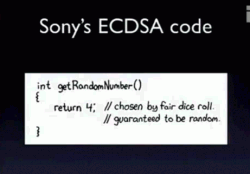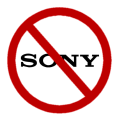How’s the second half of 2011 been treating you? Not too bad I hope. I’ve been busy working on my little Android app, which you might remember me mentioning a couple of months ago. I’ve learnt a bit more about Android programming since I last updated the app, you know things like how not to make it crash every time it starts up, or how not to make it drain up all your CPU and your phone’s battery in no time. Small things like that. And so I thought I better update the app. It’s coming along, and it should be ready next week or the one after. Android programming is not easy, as there are quite a few quirks you have to work around with, and also deal with the constant OS updates (what works in Android 2.2 may not work in 2.3, with Google not providing a whole lot of warning about the impact of potential changes). So the next time an app crashes on you, don’t immediately curse the programmers, because it’s not always their fault (it’s mostly their fault, but not always).
Let’s get on with the news roundup.
 In copyright news, the MPAA has been busy this week, with two lawsuits to contend with, one in the UK (via the MPA, its International wing), and another back in the States.
In copyright news, the MPAA has been busy this week, with two lawsuits to contend with, one in the UK (via the MPA, its International wing), and another back in the States.
In the UK, the MPA is trying to get the high court to force BT, a large British ISP, to ban access to the Usenet sharing website Newzbin. The high court has already ruled in favour of the MPA agaqinst Newzbin, except shortly afterwards, Newzbin2 sprang up overseas, and it’s still unknown whether this new incarnation of Newzbin has anything to do with the original. Regardless, the MPA doesn’t want the millions they’ve spent fighting Newzbin to go to waste, and now want to force ISPs to block access to all incarnations of Newzbin. This brings up an interesting question. If this new Newzbin, dubbed Newzbin2, is run by completely different people, outside of the jurisdiction of the UK, then does the earlier Newzbin ruling really apply? And if the high court this time is treating Newzbin2 as a new website, ruling it guilty based on past precedent, then can they also apply the same to every other website that the MPA wants banned?
And at what cost to ISPs? The MPA says that BT already has a filtering system, used to block child pornography, which they say can be used to block Newzbin/Newzbin2. But for other ISPs that don’t have a blocking system in place, they will have to invest in one at great cost. And whatever system will probably be easily bypassed anyway. And of course any ruling that forces ISPs to take action in effect shifts responsibility to copyright control over to ISPs, and somehow make them all responsible for their subscriber’s activities. I hate to use the same analogy again, but should a phone company be held responsible for all crimes committed by account holders? Some argue that ISPs profit from infringing activities (users buy more bandwidth to download pirated stuff), but phone companies do also benefit from illegal activities by charging account holder fees, so what’s the difference, other than the fact that the “crimes by phone” lobby, if it exists, isn’t as strong as the entertainment industry lobby. And since the MPA/MPAA’s members only include the big 6 studios (Disney, Fox, Paramount, Sony, Universal and Warner Bros.), it’s not even a situation where the lobby group representing all studio’s interests.
The other lawsuit the MPAA is involved in is against file hosting website, Hotfile. Hotfile has complained to the court that the MPAA’s request for information has become unreasonable. Court documents reveal the MPAA simply wants everything Hotfile has, including financial records, all user details (even those not participating in unauthorized sharing and downloading), and even Hotfile’s website’s source code. Hotfile’s business would effectively be ruined if any of these are handed over, but the MPAA wants it all, and Hotfile are calling this “murder by litigation”. And maybe that’s the MPAA’s real goal. The way I see it, if you’re going to offer online digital storage with sharing, then unauthorized sharing is unstoppable. It may not be a movie, TV show or a music track, but it could still be the unauthorized sharing of business documents, trade secrets, or even national security data. So the choices are to ban this type of extremely useful service online, and go back to the bad old days of sending files section by section via email, or prosecute those that actually do the uploading. Analogy time again. If a spy steals national secrets and send them back to his home country via Gmail, should Gmail be held responsible for not properly filtering all emails and attachments?
I guess the argument would be that Gmail is not primarily used to share national secrets, and one of Hotfile’s main uses may be piracy related. But then if this is true, why are ISPs being held responsible for pirated downloads, because piracy is not one of the main uses of an Internet subscription (despite what the MPAA wants you to believe).

'A Lonely Place for Dying' is trying to change the way movies are funded for their theatrical release, by embracing BitTorrent networks
And while Hollywood, and by Hollywood, I mean the big six studios, are obsessed with fighting the Internet, independent producers are trying to find ways to leverage the web to promote and sell their movies. Hollywood veteran and Star Trek icon James Cromwell has produced a film, ‘A Lonely Place for Dying’, and instead of being afraid of BitTorrent networks and people downloading the movie for free, he’s embracing it as a new way to promote and secure funding for the film’s theatrical release. Instead of using Hollywood connections to secure major studio backing for the film’s theatrical run, instead, the film is being distributed for free in serialized form on the BitTorrent powered VODO network, along with other notable P2P partners, including The Pirate Bay, isoHunt, uTorrent and Frostwire (a who’s who list of “Hollywood’s” most wanted, if there ever was one). Funding will be via donations, and the hope is that enough publicity is built up to allow the film to have a loyal following *before* it makes its way to the big screen, almost the reverse of what usually happens.
This is great for independent film producers, without the budget and backing of major studios. But it could be bad for the majors. Not just that independents can now find other ways to get their movies screened, without having to play by the majors’ rules, but also because the Internet has become the ultimate critic. If a movie is bad, the Internet will be all over it, and pretty soon, it will be all over for the film’s theatrical run (and future disc sales). And for those that still enjoy a bad movie now and then, instead of having to pay to see it, they can simply torrent it instead, and denying the major studios an important source of their income: crappy movies. Hollywood produces a lot of crap, and in the past, people would go and see the movie and then find out it’s crap, and even then, some will be adventurous enough to rent or even buy the movie on disc. Then the Internet came along, and people no longer needed to pay to enjoy crappy movies, and this is when Hollywood became extremely worried. The reason why I think this is the case is because good movies have still managed to earn a lot of money, despite Internet piracy becoming widespread – some have earned even more than before, and some of that is actually because of the Internet and the word of mouth effect (and you can tell the studios know this, because find me one movie these days that doesn’t have its own website, Twitter account and Facebook page?). In many ways, the film business has become a lot more democratic. The choice used to be between paying to watch a movie, and not watching the movie. Now, the choice is between paying to watch something, and not paying to watch the same thing – and that has made the people that want to maintain the monopoly scared, and they’ve tried everything, from DRM, to political lobbying, to maintain the status quo.

Which brings us to HD/3D news. 3D has helped the majors in a big way because, without having the same 3D experience at home, the viewer’s choice becomes limited again to paying for something, or not watching it at all. Except Hollywood’s greed has ensured every movie, including all the bad ones, are in 3D, and even ones that aren’t shot in 3D are converted to 3D in post processing.
As much as I hate Michael Bay’s films, and I do hate most of his films, at least he sees the importance of giving viewers the proper 3D viewing experience (or as he claims with Transformers 3), and not some half-assed afterthought that so many 3D movies are these days. Of course, it would be even better if Bay also paid a little bit of attention to plot, dialogue and character developmental as well, but that’s a debate for another day.
And to make it worse, the 3D premium is getting ridiculous, to the point where it is hurting 3D presentations at the box office.
So really, if Hollywood wants viewers to make the right choice, to pay for movies, then they need to stop making bad movies. And if they’re still complaining about not making enough money on movies such as Avatar, or The Dark Knight, then that’s just greed talking, because a billion or more in pure revenue for a single movie, in my mind, is good enough already.
For some reason, the rest of this WNR is all to do with Sony. It wasn’t intentional at all, but that how the week unfolded.
The first news item has to do with Sony movies disappearing from Netflix. Hands up if you thought that this was some kind of move by Sony to do with DRM, a protest against digital distribution from the owners of Blu-ray, or some kind of anti-competitive thing. In the end, it had nothing to do with Sony at all, well not directly anyway. It’s all to do with digital distribution deals that Sony signed with Starz, who then sold the rights onto Netflix, and in the short-sightedness of it all, the deal has included a provision which limited the number of people that are allowed to access Sony movies online at any one time. With Netflix’s explosion in popularity, this limit was soon reached, and hence, the agreement had to be terminated, and Sony movies pulled until a new agreement can be made. It certainly looks like Sony sold the online rights to its movies very cheaply back in 2008, and that Netflix, via Starz, will now have to pay a lot more to get the rights back.
![]()
The second of the Sony related stories (don’t worry, there are still two more), has only a tenuous link to Sony. Former enemy, George Hotz (geohot), has apparently landed a great job at Facebook, just months after being sued by Sony.
Some will think, hack Sony => great job at Facebook, but it’s more of a case of smart guy => get job at Facebook, I think. Regardless of what you think of geohot’s actions, he’s one smart guy. And Facebook users should be relieved that he’s now working for the right side, because if you think Sony’s 100 million user data leak was something, just imagine if Facebook had a similar data breach – bedlam, I think, is the best word to use if this were to happen. Remember when geohot quipped that Sony should hire him if they’re serious about security, and then Sony tried to use this against him in the lawsuit as evidence of financial blackmail … maybe, just maybe, Sony should have done what Facebook has done and hired the guy, and maybe, just maybe, they wouldn’t be the butt of every Internet security joke at the moment.

Let's not forget that the PS3 was only hacked because Sony's poor implementation of their security design
Or they can just stick their head in the sand and blame the whole incident on something else. Apparently, it was not Sony’s awful decision to remove OtherOS from the PS3, not when it has been so heavily promoted by the company as a feature that sets the PS3 apart from all the other consoles. No. Sony’s controversial CEO, Howard Stringer, says it was all because poor innocent Sony tried to do the right thing, to protect their games from piracy, that led to the PSN hack. This seems to suggest OtherOS was an attempt to prevent the PS3 from being hacked for piracy, something Sony has denied time and time again (saying OtherOS removal was for financial reasons, due to the high cost of maintaining this feature), and seems to suggest Sony is linking OtherOS and the Linux community to piracy once again. Of course, removing OtherOS not only did not prevent the hacking of the PS3, it led to it, and hacking groups all concentrated their effort on cracking the then impregnable PS3 security system. And then came the lawsuits, the Anonymous DDoS attacks, and the rest is history. A couple of weeks ago, I posted my opinion of how Sony should change as a company in order to put this whole incident behind them properly. Right now, it looks like business as usual for Sony, as they arrogantly deny that, in the end, they were more to blame for the PS3 hacking and PSN breach than anyone else. Not pirates. Not hackers, who could only have exploited the gaping holes you left for them. But the blames lies with a company that just doesn’t really give a crap about its customers, and are proud to show that they don’t care in multiple ways, from badly designed DRM, to pulling features people paid for, to not securing their data.
Which is probably why the lawsuit launched in New York against Sony won’t be the last. The lawsuit claims Sony neglected to protects it customer’s security, and not only did they fail to pay attention to “known vulnerabilities” in the outwards facing servers, they even sacked security staff just weeks before the PSN breach, the lawsuit claims. I don’t want to comment on the merits of the lawsuit, but it’s clear that Sony needs to be held responsible for their total lack of respect for security, because a breach like this doesn’t usually happen without a corporate policy that actively contributed to the disaster.
Alright, enough ranting this week. See you in 7 day’s time.
And I suppose I should mention tomorrow is the 12th anniversary of this website, Digital Digest (well, it wasn’t called this back then). Hard to believe I’ve been doing this for 12 years already, but I’ve never been bored (thanks to companies like Sony that continue to make headlines for all the wrong reasons, and reasons that I can explain here). Thanks for everyone who has visited, and put up with my ramblings (luckily, the WNR is a relatively new invention in the history of Digital Digest), this website wouldn’t be here without people like you!















